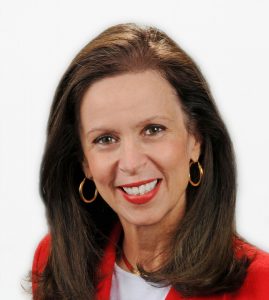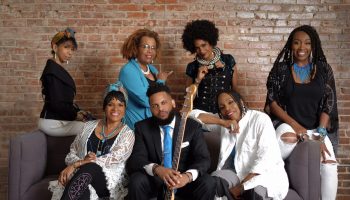
Robin Wright considers herself lucky for the opportunity to watch history unfold.
She has witnessed political transitions, such as the end of communism in the Eastern Bloc; she watched the Egypt-Israel peace treaty signing on the south lawn of the White House; and was present when Nelson Mandela walked to freedom. She has traveled with almost every president since Jimmy Carter and every secretary of state since Henry Kissinger — oh, and a pope.
But above all, she considers herself “very, very lucky” that her dad loved sports.
Wright, contributing writer to The New Yorker and a fellow at the Woodrow Wilson International Center for Scholars, will speak at 10:45 a.m. Monday, August 12 in the Amphitheater. Wright will open Week Eight, “Shifting Global Power.”
Wright described her career as a “total accident” and a way to “get revenge” on her father, who loved sports and brought Wright with him to every game and match he wanted to see.
While attending the University of Michigan, her roommate suggested she go to a meeting for The Michigan Daily. Even though she walked in with no interest in journalism, she saw an opportunity in the paper’s sports section and figured she would write one article to joke with her father.
“The joke was on me, because I became the first female sports editor for the student paper,” she said. “There are times in life when a confluence of events come together and shape your life — this was one of those moments.”
Wright has since covered a dozen wars and several revolutions, reporting from more than 140 countries on all seven continents for numerous publications, including The Atlantic, The Washington Post, The New York Times Magazine, TIME and Foreign Affairs.
However, Wright still considers herself a historian. While chronicling contemporary history, Wright has been present for every Middle East war, uprising and revolution since 1973.
Throughout her career, Wright has wrestled with the morality of war. Instead of reducing death tolls to statistics and figures, she has always strived to take her coverage a step further, asking, “How do these conflicts affect the human existence?”
“Whether I’m seeing kids going to school and creating a better next generation, or destroying an infrastructure so people don’t have homes or access to water, I always live in war zones, just like everybody else does,” she said.
After witnessing “extraordinary change” in government and global policy in her 50 years of being a correspondent, Wright has a certain sensibility — to anticipate when change is on the horizon.
“As a historian, I am struck by how this century is going to be the most important period of change in reshaping the means of governance, the way we fight war and the adversaries we fight in those wars,” she said.
And power will not only shift this century, according to Wright, but the definition of power will change completely.
“In many ways, we are going through a transition that is as important and as big as the one we went through 500 years ago when nation-states were formed out of city-states, when you had the printed word and beginnings of the Enlightenment,” she said. “We went from a God-centered world to a human-centered world, and we are going through that kind of epic change.”
In her lecture, Wright wants to educate people on the “big picture,” as she said people do not spend enough time stepping back to grasp the scope of change ahead, a lesson she learned from her father.
“My father, who was a wonderful professor, taught his students and his children that to solve any problem or any issue, you had to stand on top of the world and look down,” Wright said. “That’s what I try to do wherever I go and not get sucked into the moment, but try to put it in a much bigger perspective.”
And her father’s lessons didn’t end there. He emphasized the importance of never letting her personal biases shape her point of view — a lesson that has carried over in her work as a foreign correspondent.
“I know what American troops or Western governments are going to do and what they want to achieve, but what I need to understand is the other side,” she said. “It’s so important to see the big picture, but also to see up close all sides; only then do you see how we get out of it, what the implications will be and understand how we got there.”
Wright stressed that this ongoing transformation has nothing to do with Donald Trump; it’s a global change that is here to stay — into 2020 and beyond.
“We are a part of something so much bigger, and we can’t allow ourselves to default into anything smaller,” Wright said. “We can be bolder, we can be braver and we can get through this.”




